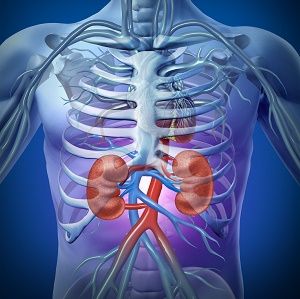Canagliflozin Returns Renal Strengths in CANVAS Trial
Janssen's T2D drug for CV risks is undergoing a kidney disease-based phase 3 trial now.

Canagliflozin (Invokana), the type 2 diabetes therapy for patients with cardiovascular risks, has shown significantly improved renal outcomes and potentially protective effects on renal conditions in its most recently published study.
Janssen Research & Development announced the positive INVOKANA results at the American Society of Nephrology Kidney Week 2017 Annual Meeting on Friday. The late-breaking data of the landmark CANVAS clinical trial reported the therapy’s efficacy in kidney disease progression reduction versus placebo.
Invokana, which was first approved by the US Food and Drug Administration (FDA) as a supplemental glycemic control therapy in adult type 2 diabetes (T2D) patients in March 2013, has been tested for cardiovascular (CV) outcomes in more than 10,000 T2D patients under the CANVAS program. The newest results also showed the therapy’s significant reduction of urinary albumin excretion and stabilizing estimated glomerular filtration rate (eGFR).
The particular renal-based study spanned 6.5 years, according to Janssen, and demonstrated Invokana’s consistent improvement of conditions across multiple endpoints, versus placebo.
The sodium glucose cotransporter 2 (SGLT2) inhibitor reduced urinary albumin excretion by an average 18% in all therapy patient groups, versus placebo. Patients’ eGFR rates initially decreased, before steadily increasing over the study’s span. Placebo patients, meanwhile, experienced a continual decline in eGFR.
Invokana also reduced pre-specified major renal endpoints by up to 47%, including end-stage kidney disease (EKD), doubled serum creatinine (dSCr) or renal death. No adverse events were reported as worse than those in placebo patients, and included acute kidney injury and hyperkalemia.
"With controlled studies of more than 24,000 patients and real-world experience including more than 16 million prescriptions written in the US, we are confident in the proven cardiovascular and renal safety profile of Invokana (canagliflozin) and the benefits it can bring to people living with type 2 diabetes," a Janssen representative told MD Magazine.
The positive trial results bode well for the T2D community, in which nearly one-third of all patients suffer from diabetic kidney disease, Vlado Perkovic, MBBS, PhD, FASN, FRACP, said.
“This underscores the need to identify new treatment options for these people who have not seen an innovation in the space in the last 20 years,” Perkovic, a Professor of Medicine at University of New South Wales Sydney, and Executive Director of The George Institute for Global Health, said. “New data from the CANVAS Program clearly indicate better renal outcomes for people treated with canagliflozin, and suggest that this agent protects kidney function, in addition to providing previously presented cardiovascular benefits.”
Janssen announced that the phase 3 renal outcomes-based CREDENCE trial — primarily focused on canagliflozin’s effect on renal outcomes of T2D patients of kidney disease — is ongoing and fully enrolled. A Janssen representative told MD Magazine that it is the first dedicated SGLT2 inhibirtor phase 3 renal outcomes trial.
Aside from positive renal results, the CANVAS trial revealed in its publishing this year that the SGLT2 inhibitor significantly reduces the combined risk of CV death, myocardial infarction, and nonfatal stroke in T2D patients at risk of CV disease. Canagliflozin has also been found to reduce heart failure hospitalization risks.
Related Coverage
Are Health Care Providers Doing Enough for Patients with Obesity?